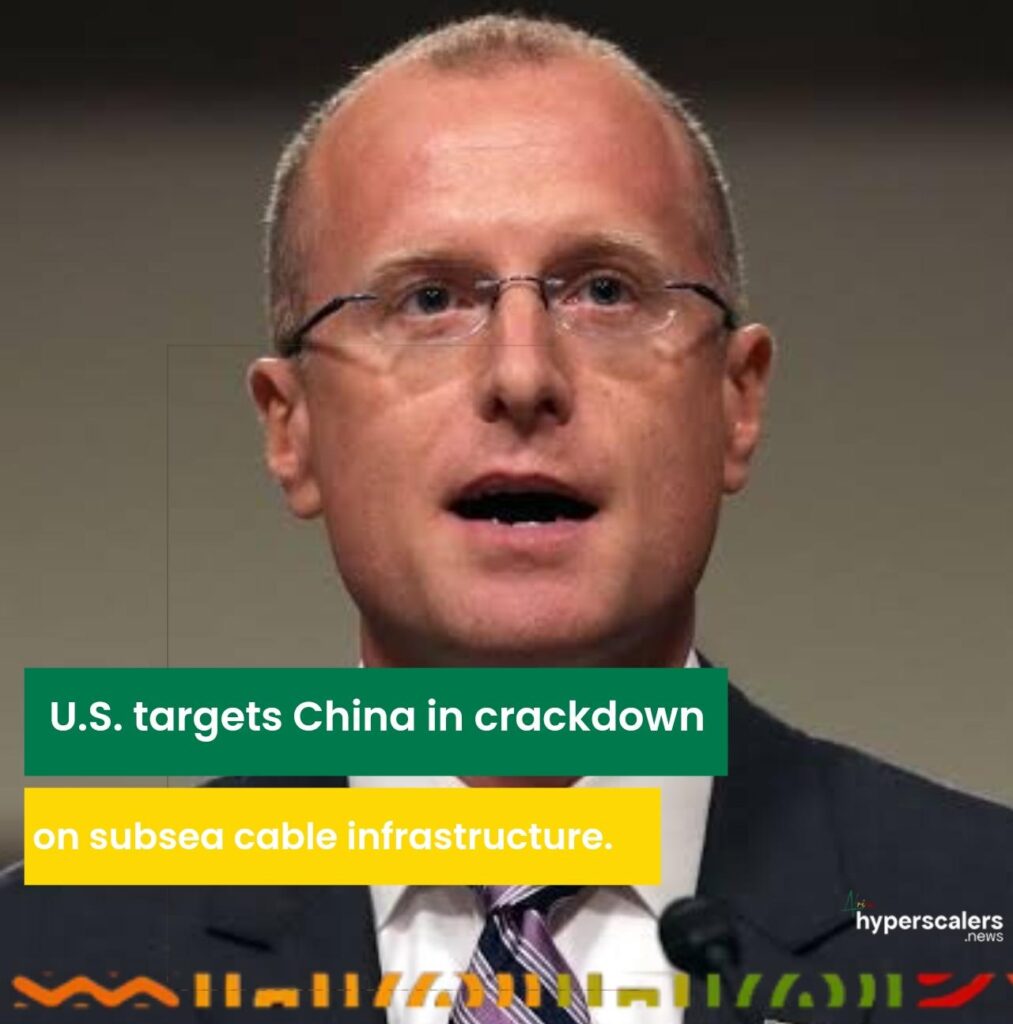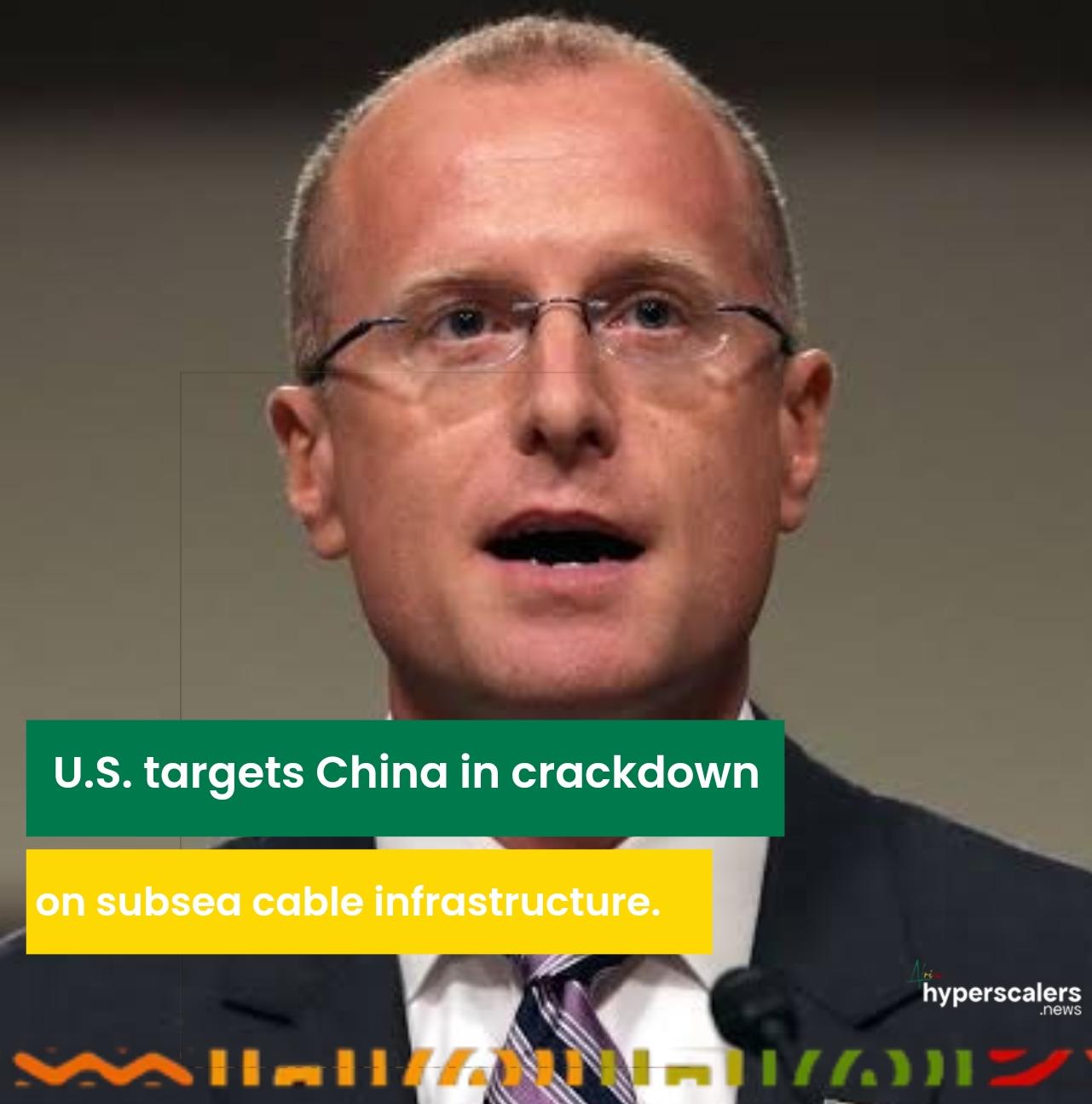The U.S. Federal Communications Commission is preparing to bar companies that use Chinese telecommunications equipment from building or operating submarine cables that connect to the United States, in a move designed to bolster national security and counter potential espionage by Beijing.
In what marks the FCC’s most forceful step yet to secure America’s underwater communications infrastructure, the commission will vote on August 7 on new rules that would deny licenses to any company deploying technology from Chinese vendors already flagged as national security threats. The rules would also prohibit such firms from leasing capacity on cables built by others.
“Submarine cables are the unsung heroes of global communications, carrying 99 per cent of all internet traffic,” FCC Commissioner Brendan Carr told the Financial Times. “We have seen submarine cable infrastructure threatened in recent years by foreign adversaries, like China. We are therefore taking action here to guard our submarine cables against foreign adversary ownership and access as well as cyber and physical threats.”
The new measure directly targets entities such as Huawei and HMN Tech, a Chinese subsea cable manufacturer that was formerly a Huawei subsidiary. Although Huawei divested from the unit, U.S. authorities remain concerned about residual influence and systemic vulnerabilities.
The rule is part of a broader crackdown spearheaded by Carr, who has stepped up scrutiny of China’s role in America’s critical infrastructure and established a dedicated national security office within the FCC. “President [Donald] Trump has long recognised ‘economic security is national security,’” Carr said.
The FCC is also considering a second rule, to be introduced later, that would extend the restriction to all Chinese telecommunications equipment and technology, not just that used in subsea cable infrastructure.
The decision has been shaped in part by “Salt Typhoon,” a prolonged cyber campaign attributed to China that has targeted U.S. telecom networks and exposed the high cost of replacing compromised systems. “China and other foreign adversaries pose a major threat to submarine cables when it comes to physical security, cybersecurity, and data access,” said one FCC official. “It’s a no-brainer to limit foreign adversaries’ access to U.S. submarine cable infrastructure.”
Currently, state-linked Chinese operators such as China Telecom, China Unicom, and China Mobile either own or manage subsea cables that link to the U.S. While the new rule will not affect existing infrastructure, it will apply to all future cable licenses.

Bryan Burack, an Asia security specialist at the Heritage Foundation, noted the policy aligns with the Trump administration’s broader economic strategy. “The America First Investment Policy endorses decoupling from foreign adversary investments in U.S. critical infrastructure,” he said.
While Africa has seen rapid growth in digital infrastructure, with new subsea cable landings, data center construction, and satellite initiatives accelerating across the continent, much of this critical infrastructure remains owned or controlled by foreign entities. Major hyperscale cables are financed by U.S. tech giants, data centers are often backed by international investors, and satellite connectivity is largely dependent on non-African constellations. This ownership imbalance, favoring the global North, raises urgent questions about infrastructure sovereignty, data control, and long-term digital independence.
The United States, under its “America First” investment doctrine, has made it clear that infrastructure is a pillar of national security, not just economic growth. Through moves like the FCC’s ban on Chinese tech, Washington is asserting control over its digital backbone and that of the world. Africa must draw lessons from this assertive posture. Without developing its own champions in fiber, cloud, data centers, and satellite technologies, the continent risks remaining a tenant in its own digital house, vulnerable to external interests and excluded from the value generated by its own traffic and users. A deliberate push for African-owned infrastructure, by creating local capital, incentivizing local companies, and enabling industry collaboration, is no longer optional; it is a strategic necessity.





